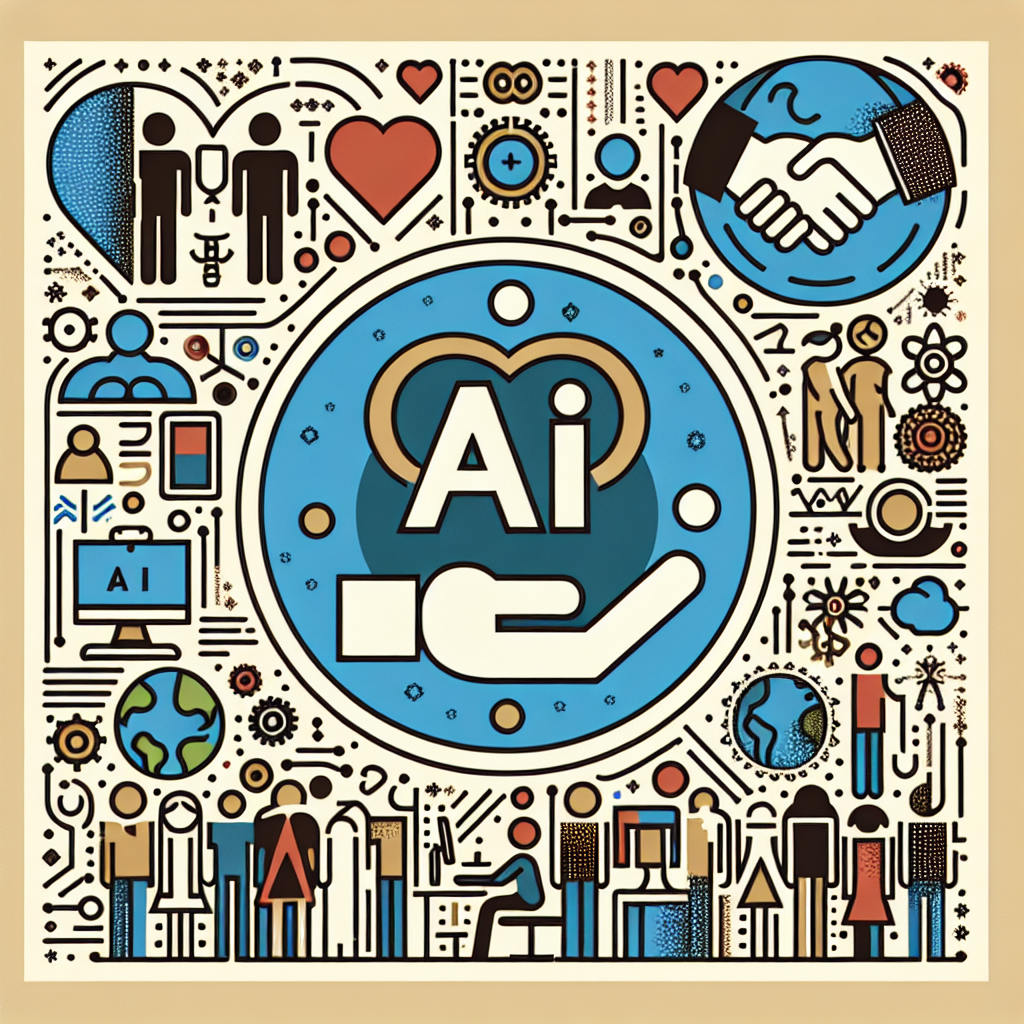The Role of AI in Enhancing Collaboration and Partnerships in the Nonprofit Sector
In recent years, the nonprofit sector has increasingly turned to artificial intelligence (AI) to enhance collaboration and partnerships. AI technologies have the potential to revolutionize the way nonprofits work together, enabling them to share information, resources, and expertise more effectively. This article explores the role of AI in enhancing collaboration and partnerships in the nonprofit sector, and how organizations can leverage these technologies to achieve their goals.
AI technology has the potential to significantly improve collaboration and partnerships within the nonprofit sector by streamlining processes, facilitating communication, and enabling organizations to work together more efficiently. For example, AI-powered chatbots can help nonprofits automate routine tasks such as answering inquiries and scheduling meetings, freeing up time for staff to focus on more strategic activities. AI algorithms can also analyze large amounts of data to identify trends and patterns that can inform collaboration and partnership decisions.
One of the key benefits of AI technology is its ability to enhance decision-making by providing organizations with insights that can inform their strategic partnerships. AI-powered analytics tools can help nonprofits identify potential partners based on their mission, goals, and impact, enabling them to collaborate with organizations that share their values and objectives. AI can also help nonprofits track their progress towards their goals and assess the impact of their partnerships, allowing them to make data-driven decisions that maximize their impact.
AI technology can also facilitate communication and knowledge sharing between nonprofits, enabling them to collaborate more effectively. For example, AI-powered platforms can help organizations share resources, best practices, and lessons learned, enabling them to learn from each other and avoid duplicating efforts. AI can also facilitate virtual collaboration by providing organizations with tools for remote communication, project management, and collaboration, enabling them to work together across geographic boundaries.
In addition to enhancing collaboration and partnerships, AI technology can also help nonprofits improve their operations and increase their impact. For example, AI-powered fundraising tools can help organizations identify potential donors, customize their fundraising campaigns, and track their fundraising progress, enabling them to raise more funds and support their programs and services. AI can also help nonprofits optimize their operations by automating routine tasks, analyzing data to identify inefficiencies, and providing real-time insights that can inform their decision-making.
Overall, AI technology has the potential to revolutionize the way nonprofits collaborate and partner with each other, enabling them to work together more effectively, communicate more efficiently, and make data-driven decisions that maximize their impact. By leveraging AI technologies, nonprofits can enhance their collaboration and partnerships, improve their operations, and increase their impact in the communities they serve.
FAQs
Q: How can AI technology help nonprofits enhance their collaboration and partnerships?
A: AI technology can help nonprofits enhance their collaboration and partnerships by streamlining processes, facilitating communication, providing insights that inform strategic decisions, and enabling organizations to share resources, best practices, and lessons learned.
Q: What are some examples of AI-powered tools that nonprofits can use to enhance their collaboration and partnerships?
A: Some examples of AI-powered tools that nonprofits can use to enhance their collaboration and partnerships include chatbots for automating routine tasks, analytics tools for identifying potential partners, fundraising tools for identifying donors, and virtual collaboration platforms for remote communication.
Q: How can nonprofits leverage AI technology to improve their operations and increase their impact?
A: Nonprofits can leverage AI technology to improve their operations and increase their impact by automating routine tasks, analyzing data to identify inefficiencies, customizing fundraising campaigns, tracking their progress towards their goals, and making data-driven decisions that maximize their impact.
Q: What are some challenges that nonprofits may face when implementing AI technology to enhance their collaboration and partnerships?
A: Some challenges that nonprofits may face when implementing AI technology to enhance their collaboration and partnerships include data privacy and security concerns, lack of technical expertise, resistance to change, and cost considerations. It is important for nonprofits to carefully consider these challenges and develop a plan to address them before implementing AI technology.

